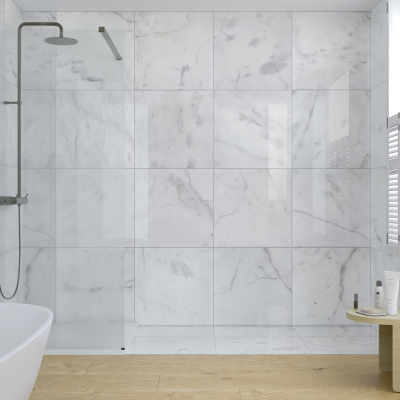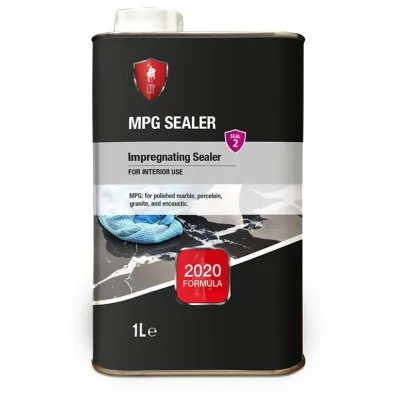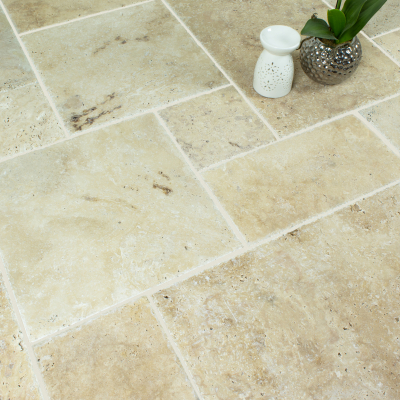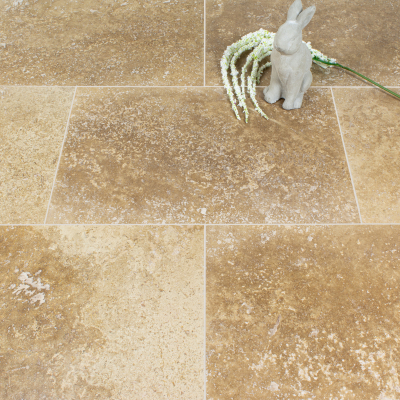Why is it important to seal natural stone tiles?
So, you finally decided on installing new beautiful natural stone tiles, set your budget, picked out your favourite natural tiles, planned your dates, and had your stones delivered and installed.
Anyone who is considering an upgrade to their home with an installation of natural stone tiles has to also consider several things, for many, this usually is the budget and availability, or visual based, the look of the tiles, colours or whether to go for a pattern of some sort.
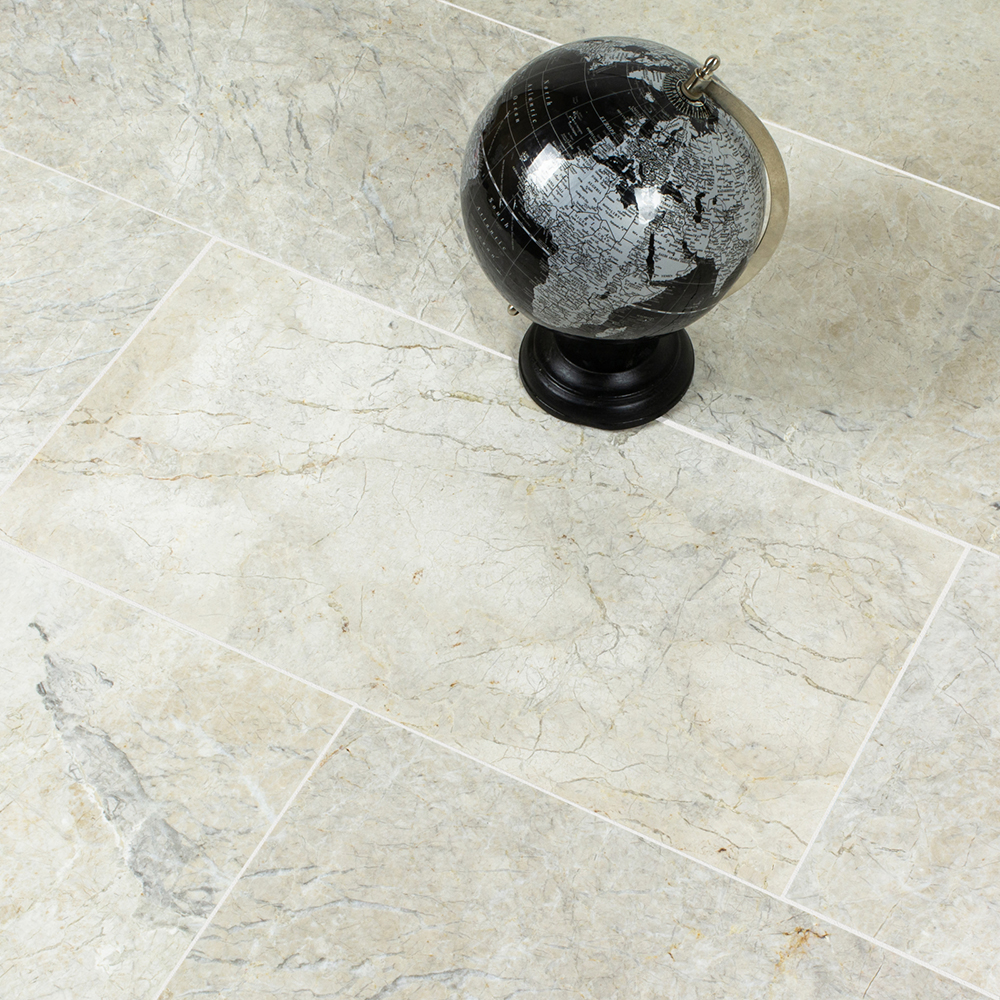
Sometimes the most important thing to consider is overlooked. Maintenance, we can get so caught up in selecting the right tile, the right look, arranging tilers, deliveries, completion dates and so on, that we tend to sometimes miss this one key aspect of actually owning natural stone tiles and looking after them as we should. Although man-made porcelain tiles are much more forgiving in this respect, real natural stone tiles need extra care. I even made this mistake before gaining experience in the sector, initial sealing of natural stone tiles when installing them does protect your natural stones, which should be done at least once before and once after the grouting process.
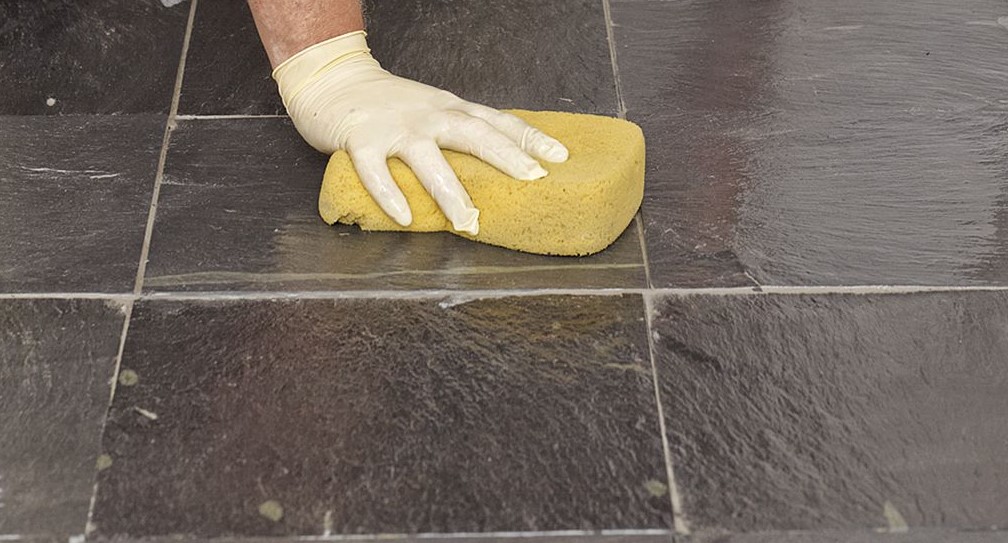
However, many out there have natural stones installed with initial sealing and possibly simply ignore further resealing processes. Focussing on just regular cleaning is not enough to look after natural stones, every natural stone evolves, breaths and changes even after installation. Over time, they soak up chemicals, oils etc. Therefore, if you want to protect their natural beauty and initial appearance for a longer period in your home, we always recommend you understand the porosity level of your new stones and take the necessary steps to maintain them regularly.
What do I need?
Below are the basic requirements for the sealing process.
- The suitable sealer for your type of stone.
- A sponge or a small roller
- A small paint tray (for your roller)
- Dry cloth (for possible spillages or over application
How many times do I need to seal my stones?
All natural stone is, well, natural stone of course however, they all have unique levels of porosity, natural Limestone is a more porous stone than a natural marble stone for instance, after the initial sealing, the porosity of each stone dictates the regularity of the resealing process that follows, this is also effected by the foot traffic your beautiful stones are exposed to, for example, hallways and kitchens will expose your new stones to more foot traffic than a bedroom installation. This means more regular cleaning (hopefully you will use suitable solutions) which naturally means re-sealing these stones needs to be conducted more regularly.
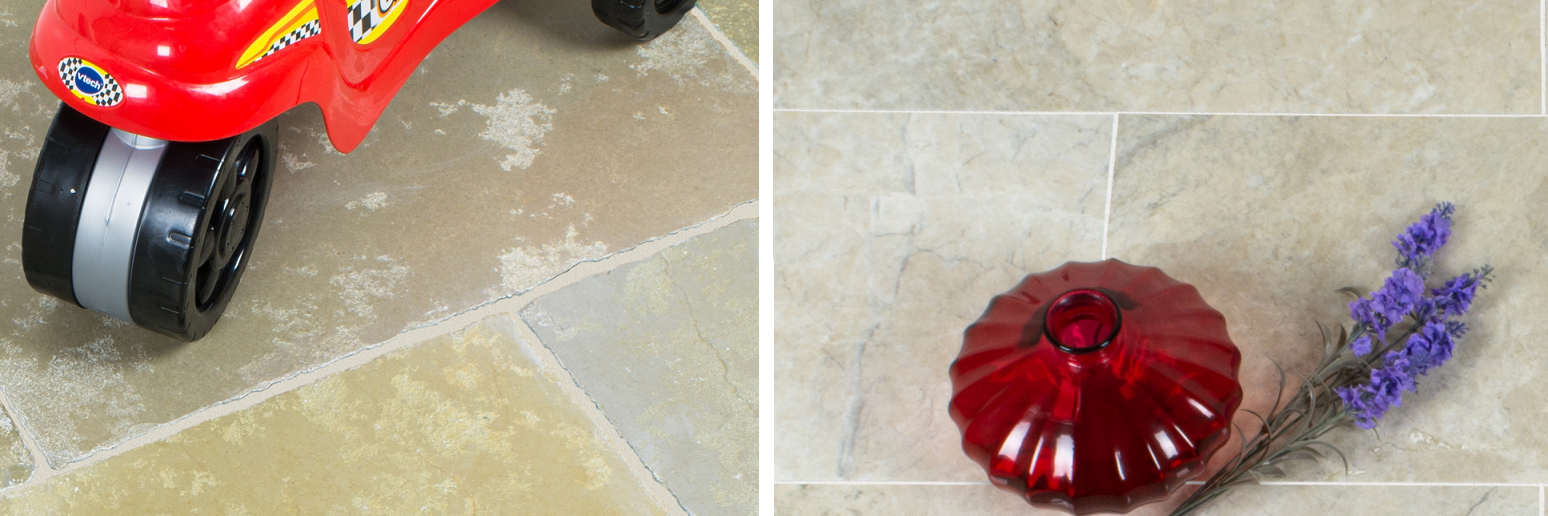
Do I need to seal wall tiles?
Sealing is recommended for all natural stones, wall tiles included, although, wall tiles will not need to be sealed as frequently as floor tiles that are exposed to foot traffic. However, wet area and bathroom wall tiles do need to be regularly sealed as they will be exposed to more moisture and water and more cleaning than wall tiles in a bedroom for example.
We have known some bedroom wall tiles being sealed just once for the duration of their use, and they still look wonderful.
Choosing the correct tile finish sealer
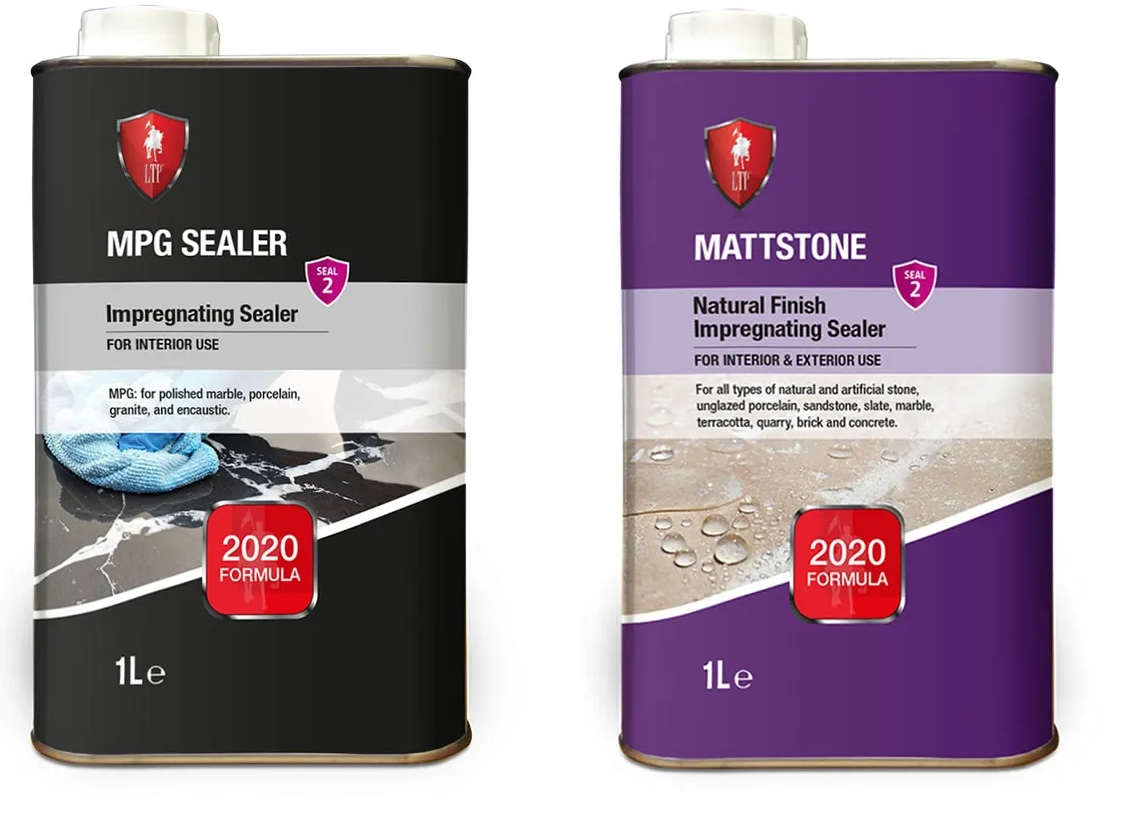
As we all know, natural stones do come in different finishes, which naturally means that a sealer is then also uniquely produced to match their unique finish, a matt stone tile sealer is the option for all honed/matt (non-reflective) finish stones, whereas a polished tiles sealer is the suitable sealer for all, well, polished finish stones (reflective, mirror-like finish).
Care for your wonderful stones as they deserve to be cared for, after all, you probably picked them out from many possible options for a reason, you admire them, so why not ensure the simple process of resealing them is done periodically to preserve the fantastic look of what you admire for a much longer period?
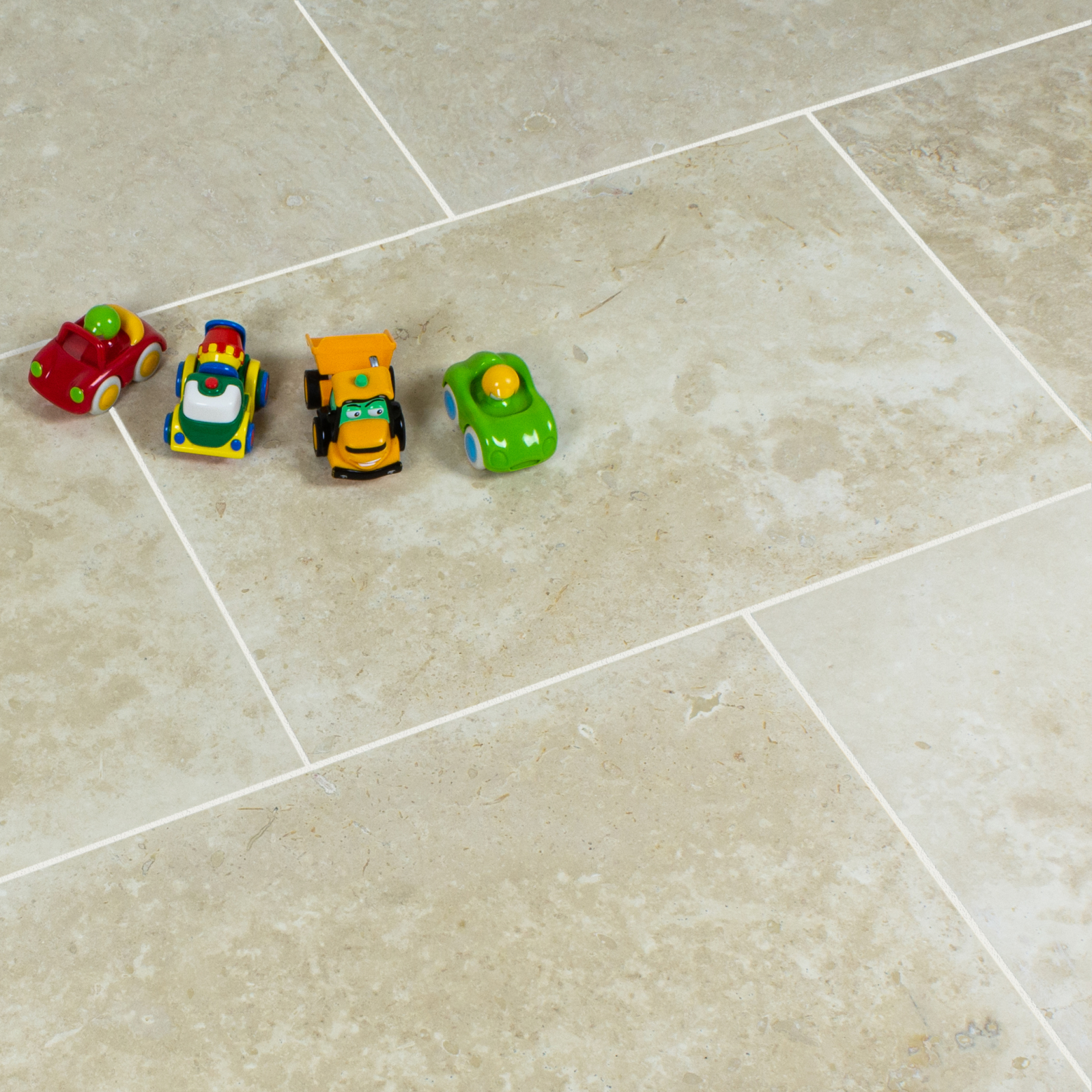
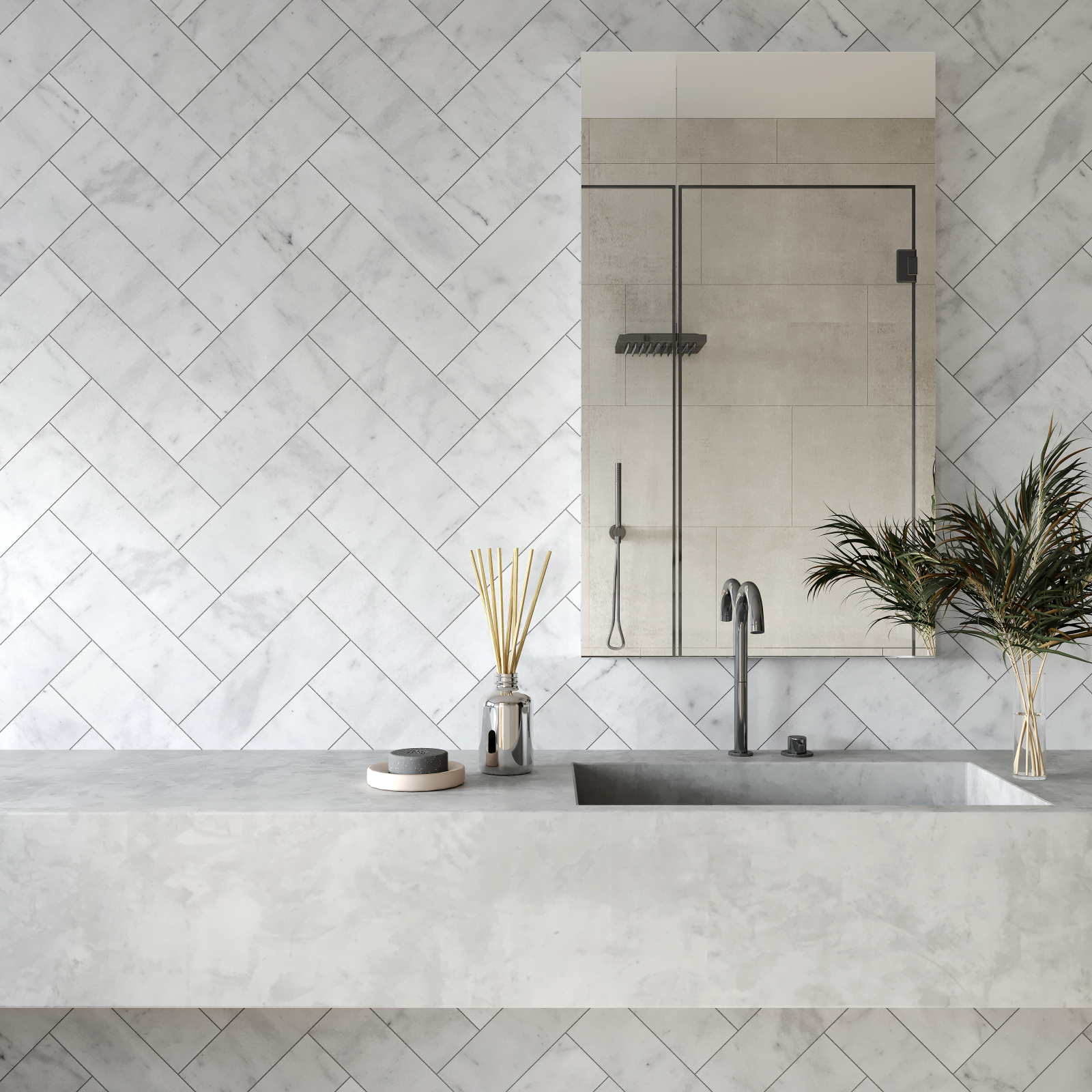
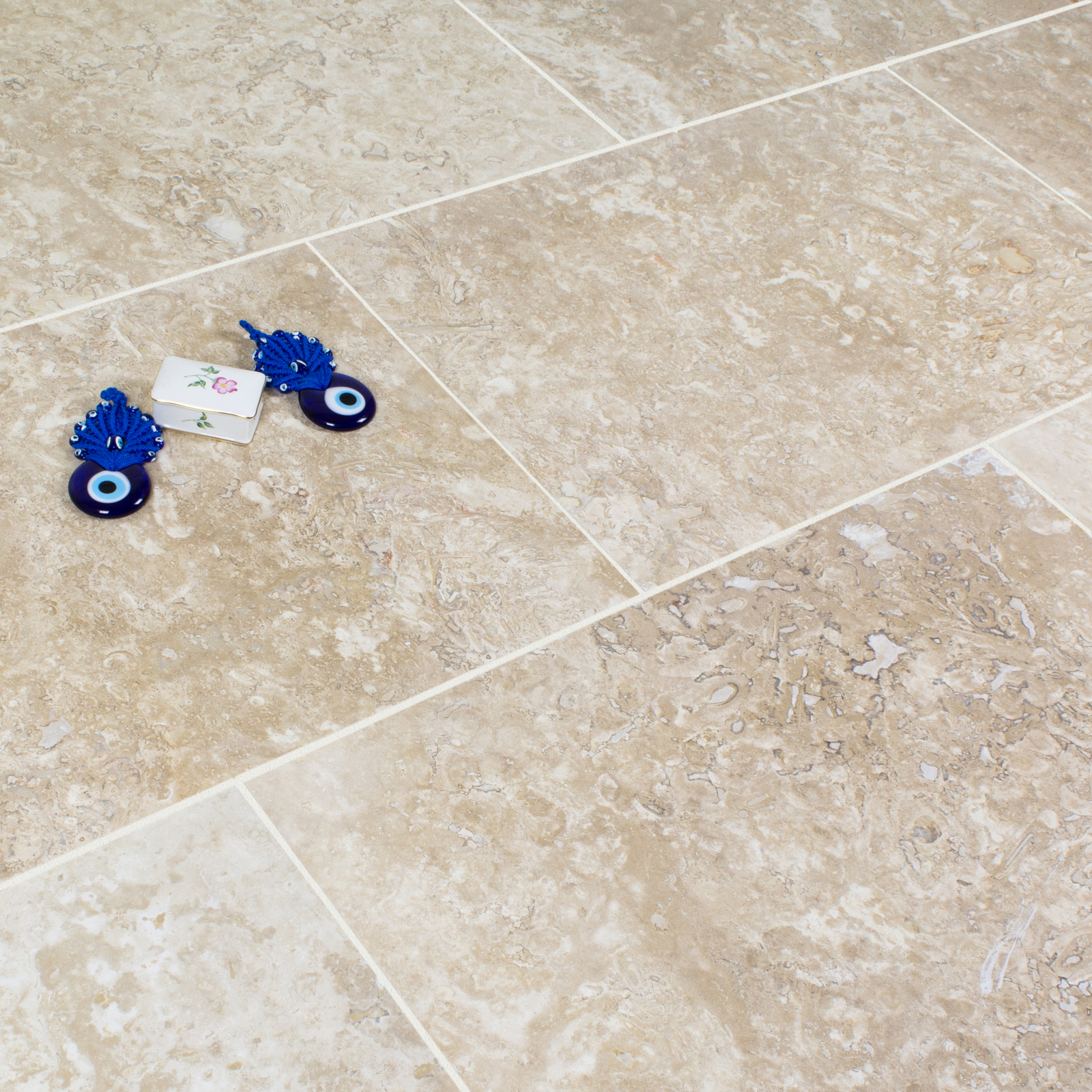
 REVIEWS
REVIEWS
